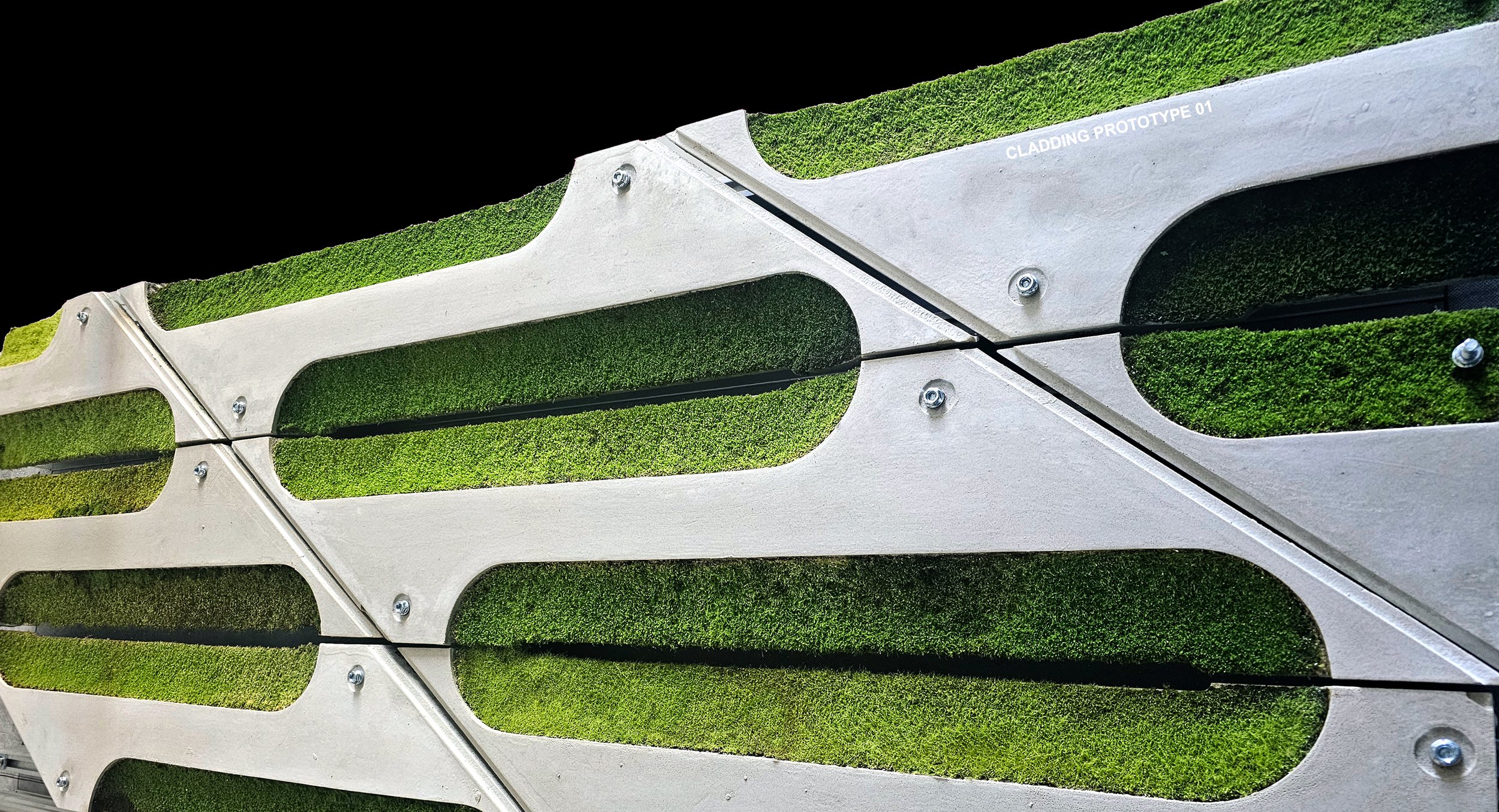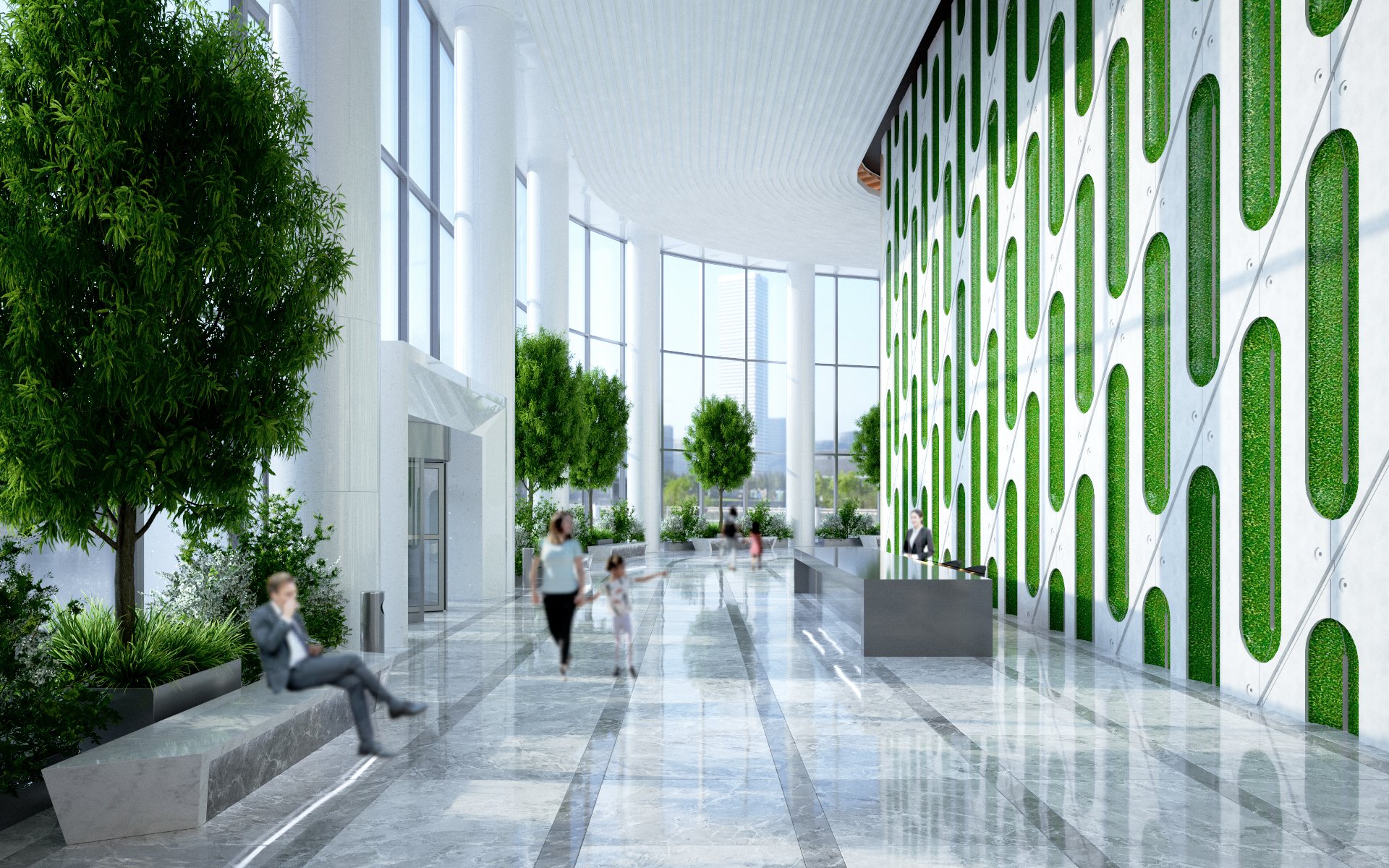a
live
Labs
THE GLOBAL CHALLENGE
CO2
BUILDINGS ARE CURRENTLY RESPONSIBLE FOR 39% OF GLOBAL ENERGY-RELATED CARBON EMISSIONS:
28% FROM OPERATIONAL EMISSIONS
11% FROM MATERIALS AND CONSTRUCTION.
Air Pollution
AROUND 91% OF THE WORLDS POPULATION LIVES IN PLACES WHERE AIR QUALITY LEVELS EXCEED WHO LIMITS.
Biodiversity
URBAN GROWTH AND THE ONGOING DENSIFICATION OF MANY CITIES AROUND THE GLOBE CHALLENGE THE EXISTENCE OF ECOSYSTEMS
OUR SOLUTION
ALIVE CLADDING
THE WORLD’S FIRST GREEN HYBRID CLADDING SYSTEM
POLLUTANTS + GHG’S REMOVAL
NOx -22.8% OZONE -24.1% PMs -21% CO2 CAPTURE -378kg CO2/TON
NOx -22.8% OZONE -24.1% PMs -21% CO2 CAPTURE -378kg CO2/TON
THE TECHNOLOGY TO DELIVER SUSTAINABLE BUILDINGS AT SCALE.
BENIFITS
1. CARBON NEGATIVE
2. PASSIVE OPERATION
3. THERMALY EFFICENT
4. AIR PURIFICATION
5. BIODIVERSITY +
6. HEALTH & WELLBEING
CORE TECH
1 CABON NEGATIVE
TERRANITE
Our key innovation underpinning Alive Cladding. A cementitious compound that is life-giving, carbon-negative, and passive in its function.
Developed in partnership with leading British Universities, Terranite is non toxic, cost effective and currently undergoing certification.
Our technology proposes to disrupt current linear modes of operation through the Terraformation of our urban environment, bringing back natural systems to everyday life.
Terranite can be used to cast a range of forms and shapes, the possibilities and endless.
2 LIFE GIVING
3 COST EFFECTIVE
BIOLOGY
SUPER MOSS
At Alive Labs through rigorous screening we cultivate specially selected mosses to produce a high performing biomass that is carefully tailored to every application.
UNIQUE ADVANDAGES
Moss has an incredibly high surface area which gives it the parallel capacity of providing excellent passive air filtration & thermal efficiency.
Moss is rootless & non-vascular which eliminates the need for bulky substrates or complex soil cultures.
Moss survives desiccation in periods of drought, allowing it to rebloom from its state of dormancy upon rehydration.
Moss is native across the planet; its almost unique resilience allows it to grow in every climate zone from hot, humid tropics, to cold, arctic tundra.









